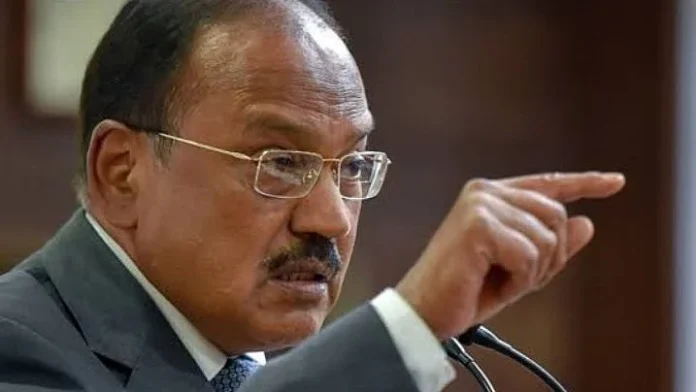India’s Defence Planning Committee (DPC) was set up on 19 April 2018. It was chaired by national security advisor Ajit Doval and included the foreign secretary, defence secretary, chief of defence staff, the three service chiefs and secretaries of the ministry of finance.
It set itself the enormous task of looking after ‘national defence and security priorities, foreign policy imperatives, operational directives and associated requirements, relevant strategic and security-related doctrines, defence acquisition and infrastructure development plans, national security strategy, strategic defence review and doctrines, international defence engagement strategy’, and so on. But this committee met once — just once, on 3 May 2018 — and never again.
In the absence of a national security doctrine, India has presumably relied upon what is informally referred to as the ‘Doval Doctrine’, of which we get a pretty clear idea from a speech Doval made at the Sastra University in Thanjavur in February 2014, a few weeks before he was appointed national security advisor.
During his speech, he made the following points:
- Terrorism was a strategic threat to India because it was an international phenomenon; because Pakistan fed and promoted it; and because India has a large Muslim population.
- However, terrorism could not be fought because it was an idea, a word. Only terrorists could be fought (or ‘degraded’ in capacity), because only a tangible enemy could be defeated, not a word.
India thus had to name its threat — in this case, Pakistan.
Having identified the enemy, Doval asked the question, “How do you tackle Pakistan?”
The problem of India’s national security strategy, he said, was Pakistan’s ability for sub-conventional warfare (cross-border terrorism and militancy) and India’s inability to escalate militarily in response because of the nuclear threat.
Doval said: “I talk about their having the nuclear threshold, having the strategic weapons systems, missiles, strategic partnership with China. How do we tackle this?” It was simple.
He said: “We engage an enemy in three modes.
“One is a defence mode — chowkidars and chaprasis — that if somebody comes here we will prevent him (from entering).
“One is defensive-offence: to defend ourselves we will go to the place from where the offence is coming.
“(The) third is the offensive mode where you go outright. Nuclear threshold is a difficulty in the offensive mode, not in the defensive-offence.”
At the moment, he said, — meaning, under Manmohan Singh’s government — “we work only in the defensive mode”.
What he was recommending was that India attack Pakistan in various ways short of conventional war.
In his words: “… working on the vulnerability of Pakistan. It can be economy, internal security, it can be political. International isolation. I am not going into details.”



